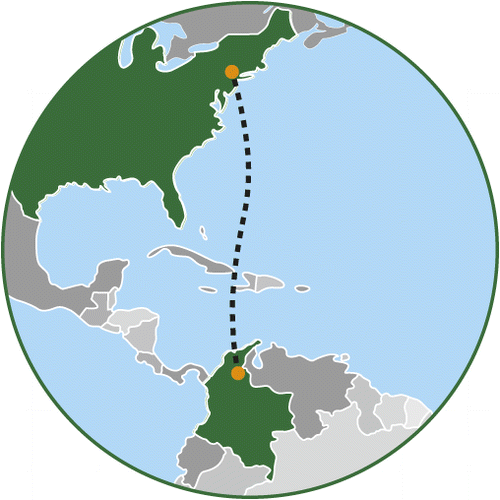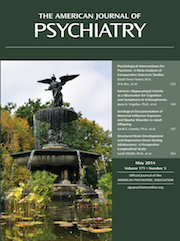In This Issue

Perspectives in Global Mental Health debuts this month (Alarcón et al., p. Original article: 506)
Cross-Cultural and Global Mental Health
Alarcón et al. (p. Original article: 506) highlight the importance of immigration and culture in the case of a depressed young man from Colombia, who searched for help from a number of professionals, including a traditional healer and a non-Latino psychiatrist, and then found support from a group of Latino young adults discussing “what it means to be a Latino in the U.S.” The authors suggest the use of the Cultural Formulation Interview in DSM-5 to elicit information about how patients’ cultural background may have influenced their understanding of their illness and the presenting symptoms, such as somatization. Ethnic background is also a consideration in pharmacologic treatment, as CYP-450 genotype can influence drug response and side effects. Fairburn and Patel (p. Original article: 495) suggest possible remedies for the global shortage of psychological treatments. Options for increasing the number of therapists include Internet-based training and training of less-qualified people. Expanding treatment on the scale needed, however, may require creation of widely available Internet self-help programs.
A program of education and coaching in healthy dietary practices may reduce subsyndromal depressive symptoms and prevent escalation to major depression in older adults. In a trial of another psychological intervention, Stahl et al. (p. Original article: 499) used dietary coaching as a comparison treatment and found that it improved symptoms 40%–50%. Eight initial sessions plus semiannual boosters led to sustained improvement over 2 years. Lifestyle interventions enhance self-management and coping skills, are not stigmatizing, and may benefit overweight patients. Dietary changes themselves may also lower the risk of major depression, through increased consumption of omega-3 fatty acids, B vitamins, and amino acids.
Cognitive-behavioral therapy is superior to other psychological treatments for reducing positive symptoms, and social skills training is more efficacious for negative symptoms, according to a meta-analysis by Turner et al. (CME, p. Original article: 523). Befriending is less helpful in ameliorating symptoms than other interventions. In his editorial, Strauss (p. Original article: 479) underscores the need to consider the diversity of treatment options in relation to the even greater diversity of patients with severe mental illness. Cognitive training focuses on neural systems rather than symptoms, and Keshavan et al. (p. Original article: 510) report that it can benefit patients with schizophrenia and may improve functioning when combined with other forms of rehabilitation and coaching. The editorial by Harvey (p. Original article: 482) notes that training in a global cognitive process, such as planning, exercises multiple basic skills, such as sustained attention.
Agitation, apathy, anxiety, irritability, and depression in elderly persons are associated with greater risk for development of mild cognitive impairment, the intermediate stage between normal cognitive aging and dementia. As reported by Geda et al. (p. Original article: 572), 1,587 cognitively normal community-dwelling adults and their spouses or other informants were interviewed at age 70–90 and again 4–5 years later. Although nonpsychotic symptoms at baseline were related to mild cognitive impairment at follow-up, baseline delusions and hallucinations were not.
Adolescents’ Brain Development Related to Depression Onset
Brain imaging in both early and mid adolescence revealed that adolescents who developed depression during the intervening period had less growth of the hippocampus and less reduction in putamen volume than nondepressed adolescents. Whittle et al. (CME, p. Original article: 564) found a sex-related difference in the amygdala: attenuated growth in depressed boys and exaggerated growth in depressed girls. In an editorial, Luby (p. Original article: 489) applauds the use of longitudinal data to explore neurodevelopment in depression, as has been done in ADHD, autism, and schizophrenia.



